Have you ever been so engrossed in an activity that you lost track of time? You were so focused and engaged that you felt absorbed entirely and at peace. If so, then you’ve experienced flow.
Introduction
Flow is a state of optimal experience where you are fully immersed in the present moment and wholly absorbed in what you’re doing. It’s a state of effortless concentration where you feel challenged but not overwhelmed and are so focused that you lose track of everything else.
We will discuss the book “Flow,” by “Mihaly Csikszentmihalyi.” In his book Flow, Mihaly explores the psychology of optimal experience. He argues that flow is the key to a happy and fulfilling life. When we’re in flow, we’re not only more comfortable, but we’re also more productive, creative, and resilient.
In this summary, we will explore the concept of flow in more detail. We will share some of the research on flow and give you some tips on how to achieve flow in your own life. So if you’re interested in learning more about flow and how it can help you live a happier and more fulfilling life, we encourage you to read this summary until the end.
A businessman named David used to work hard day and night to further his business. And he had achieved success in his business to a great extent, and he had everything that could make him happy. Despite this, he is unsatisfied with his life – he cannot understand what is missing. What was missing in his life, which was incomplete?
That flow was absent in his life, so that he could feel real happiness and satisfaction. Great psychologist Mihaly Csikszentmihalyi’s investigation of the “optimal experience” has shown that what makes an experience truly an experience is a state of consciousness called flow. During flow, people typically feel a sense of happiness, creativity, and connection with life.
The Psychology of Flow teaches us how, by being mindful of the information that flows into our purposes, we can find true happiness, unlock our potential, and vastly improve the quality of our lives. In this video, we will learn how David got satisfaction and joy.
To understand the book better, we are going to discuss this book separately in 10 chapters. So let’s start.
Chapter 1: The Path to Happiness
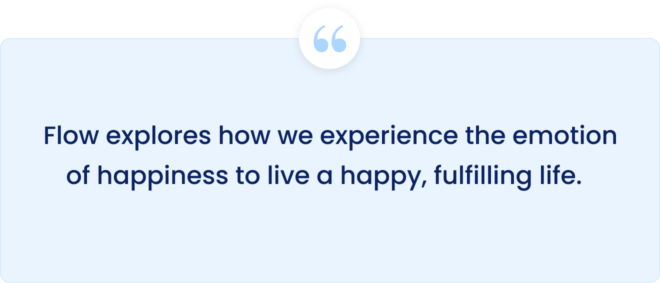
Flow explores how we experience the emotion of happiness to live a happy, fulfilling life. This is achieved when we immerse ourselves in a state of sublimation that the author calls “flow,” a state of mind in which one is adaptive to challenges. We temporarily lose control over our sense of self and our time. Using a system of targeting and quick response, we can achieve a state of flow to create alignment with work, increase self-worth, and find meaning in life.
Happiness doesn’t come by seeking it – The more you aim for joy, the more you miss it. This happens as a “side effect” of your dedication toward a cause greater than yourself. In this chapter, the author explains where happiness comes from. According to their research, it is not something that passes by, nor is it the result of luck or randomness.
It is also something other than what we can measure with money. In other words, happiness does not depend on external effects but on how we perceive those effects. Although many believe that external forces determine joy and happiness, there are precious times when went rely upon earthly control of our actions rather than being in control.
And when this situation occurs, happy least, satisfaction, and supply will have even more positive long-term effects on our lives. That phenomenon is Csikszentmihalyi. This situation does not happen when people are inactive, but it does happen. When you are in a state of flow:
- An hour seems to pass in the blink of an eye;
- Karma and consciousness become one;
- You feel entirely in control;
- You think that what you are doing is essential;
- And it is worth experiencing, which comes from intrinsic motivation.
So from today onwards, harness the power of flow to find real happiness.
Chapter 2: The Physical Composition of Human
Consciousness Looking at the past – adopting the old times, feelings, and thoughts of the cultures were considered ideal, the rule. It is no longer relevant in this day and time where we are advised to confess our thoughts and express the feelings we want to. People who control their thoughts and feelings are often described as “harsh” or “emotionless.”
However, according to the author, those who know how to take advantage of their discomfort to gain control over consciousness are the ones who live happily. Once we understand the machinery inside, we can control them and decide what life will be like. We, humans, have developed consciousness-specific points of evolution.
Because of this, we can make a “difference” between stimulus and response. Through this, we can use our senses for lying, writing poetry, or scientific hypotheses. And most importantly, regardless of external fluctuations, you can make yourself happy or unhappy by changing your assumptions. We can do all this ourselves.
Over their average lifetime, a person collects about 185 million information units, such as sounds, visual stimuli, or the nuances of feelings and thoughts. In this way, our knowledge makes up most of our understanding sets.
Now the question becomes, how does the information get into the mind? They are sent to the mind through “mental energy,” or, more simply, attention is attracted to that information. So you need to take care to bring the things to your benefit. For this, forget the external distractions and focus till you reach your goals.
Chapter 3: Happiness – Quality of Life
When we see someone rich, famous, or well-dressed, we automatically believe they live a complete life. However, later we realize this is not happiness. They are the ones who suffer. But do you know why? Because a person who wants to improve the quality of life not only enhances the quality of the environment but, more importantly, improves the quality of his experience.
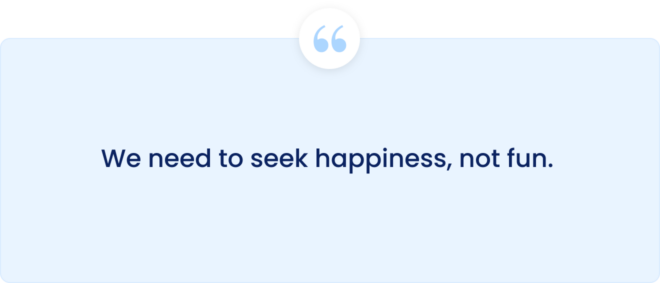
We need to seek happiness, not fun. The author has pointed out a difference between happiness and fun. Pleasure satisfies simple therapeutic needs, such as eating or sleeping. Furthermore, fun meets needs and wants while also motivating oneself by using skill and concentration to overcome the limits of instinct, with which we can fulfill our great goals and simultaneously control ourselves.
However, most people want instant gratification to compensate for their difficult days. Making fun a priority isn’t challenging, but putting a sense of happiness over the fun is easy. Creating fun and rewarding but challenging to achieve removes them from great opportunities for innovation and development. For example, many people watch TV or movies after a tiring day at work. In this situation, they are inactive and can easily wander off.
At the end of the week, they are immersed in alcohol or drugs. But the result is often the same: they harm themselves and lose control. The mind often doesn’t do what we want it to do to achieve our goals, but we shouldn’t choose the path of least resistance either because it’s the easiest to stray from. “Most enjoyable activities don’t come naturally; they require an initial effort that you may not initially enjoy doing.
But once your skills begin to respond, they become a gift you can use.” they are precious. You can feel these changes yourself. Just make a start and unleash your remarkable results.
There are specific ways in which we can incorporate into our daily routine to achieve the goals we have set. The first way is to make external situations according to the plan, while the second is to experience external conditions so that they can be according to our goal.
One is based on manipulating the outer world, while the other option suggests changing our opinion about external situations, which is more correct.
The factors used to create flow are divided into eight parts. One or more of these factors are always active when experiencing flow.
- First, flow is usually experienced when we are faced with tasks that we have the opportunity to accomplish.
- Second, we can pay attention to what we are doing.
- Third and fourth, focus is usually possible when the work has clear goals and immediate responses.
- Fifth, a man works with a deep but comfortable partnership that drives awareness away from the worries and sorrows of everyday life.
- Sixth, enjoyable experiences give people a sense of control over their actions.
- Seventh, the concern about oneself disappears, yet after the end of the flow experience, the feeling of self emerges stronger.
- Finally, the meaning of time changes; Hours pass by in minutes.
Chapter 4: Finding Flow
Looking at the actions that often create flow, we gradually understand what makes people happy. One morning in Naples, Italy, an American tourist bought a statue at an antique shop. Thought. The store owner told an offensive price of that statue, but when he saw that he would pay that price, He said that the item was not for sale. Now think, why did he do this?
The shop owner charges such a high price not because he wants to profit from the guest but because he wants to enjoy his intelligence. It helps sharpen his mind and train him to improve his sales skills.
Whenever we do something neither easy nor difficult, we push our limits to achieve more. For example, when you play tennis, you enjoy trying to hit the ball over the net the first time. But once you gradually master it, the work gradually becomes boring, and you start challenging yourself, like hitting the ball on the competitor.
If you choose a competitor who plays efficiently and is ten thousand times more skilled than you, then it will be much more difficult for you to win. You’ll soon learn the difference between knowing and being afraid because this challenge is so complex that you’ll miss out on the chance to practice a new skill. However, your skills improve if you choose a competitor slightly above your level.
As the book’s author himself states: “The choice comes at the border between boredom and anxiety when the challenges are balanced against the ability to perform. To improve, skill also needs to be balanced with personal goals and passions and should not be independent of circumstances such as the promise of an award if you do well—or threats and punishment if you don’t do well.
To get a sense of this, read about the life of potter Eva Zeisel, who was once imprisoned by Stalin’s forces. She constantly played chess in her mind to maintain her purity, memorized her poems, and exercised. She claims she can improve her skills, imagination, and talent even in the worst circumstances.
To overcome the fear and anxiety of contemporary life, A person should be so free from the social environment. To master that, learn how to create your awards. Also, develop the ability to find happiness and purpose regardless of external circumstances.
Chapter 5: Flow in the Body
One cannot depend entirely on art or sports to improve one’s life. On the other hand, our bodies always have infinite potential. If that possibility is ignored, the body’s functions will gradually end. For example, if you don’t practice, your body moves slowly and awkwardly, your eyes become less flexible, you only notice boring things, your ears only hear noises, and your mouth feels the taste. Therefore, knowing what happens in mind is essential to improve the quality of life.
Along with this, everyone must also practice sensory and physical skills. For most people, walking is just getting from here to there. But if you pay more attention to the environment – to other people, signposts, squares, architecture, landmarks.
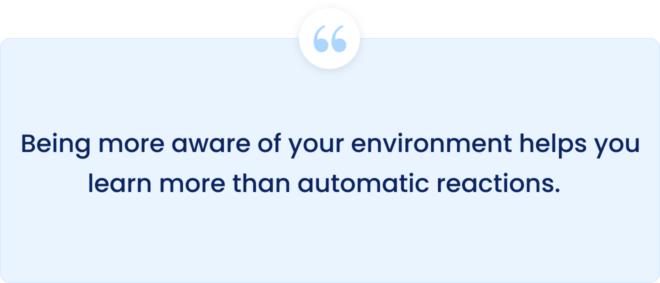
Being more aware of your environment helps you learn more than automatic reactions. Indeed, the colorful world is full of inspiration. The sky has many forms, and meditating on those wonders can open you to a new and richer perspective. With, can feel connected to everything.
In addition, if we mention the attraction of the “magic” of the song, nowadays, with just one simple operation, we can access countless styles of songs. But rarely do we get lost entirely in those loud, delicate voices. And then, if you pay attention to the music you’re listening to, it opens up a whole new level:
- Intelligibility, feeling your body’s reactions to each beat, each sound.
- Association when equivalent images come to mind.
So analyzing each structure of the piece and comparing it with other versions, other musicians.
But to make mindfulness reflective, we need to strengthen our self-mastery, and one of the most effective ways to practice is yoga. For a long time, yoga has been seen as a positive way to release the ego and attract attention to a specific target—yoga deals with non-violence, conformity, purity, discipline, and a higher power. You can gain unprecedented control over your mind – use the body you live in.
Chapter 6: Flow of Thought
The previous experience is about more than just the senses. Some of the most uplifting experiences we feel are born in the mind when some information requires thinking rather than using our senses. Among mental activities, reading is considered the most common flow-inducing behavior
. Use exercises like solving crosswords, playing sudoku, writing, and solving maths to bring flops into your thoughts. Apart from what we believe, the normal condition of the mind is a mess. When people try to focus, they are drawn to something else, making it impossible to maintain that focus for a long time.
But you can easily focus on your idea when you do one thing with the flow. And through this, whatever work you want to do, you can complete it in a much better way. Overall, flow is the only way to create a sequence in mind.
Chapter 7: Working with Flow
Does work always have to be complicated and overwhelming? No, not at all. Like any other simple task, your one study can become a source of flow: all it takes is goal setting, feedback, mastery, and challenge. Many highly skilled jobs are well done for a sense of flow. But do you know why only a few people still have that feeling while working?
Many people must be fully committed to working. They must consider experiences and inspiration as necessary, based only on stereotypes. Also, they need to learn that we should do work like this for this purpose. Let go of those prejudices and immerse yourself in the task to create a flow. Take the example of the older adults in a village in the Italian Alps.
For them, there is no difference between everyday work and free time. Every day he wakes up at 5 a.m. to collect milk from the cow, carries bales of hay for miles, tends to the orchards, and cooks food for the family. And when he was asked what he would like to change after becoming wealthy, he replied that nothing had changed.
Everything is as usual. They find themselves in a state of flow when they work rather than relax, which increases their confidence in their imagination and ability to focus.
The book also tells the story of a welder in a train factory. Many people knew him because of his curious spirit. He enjoyed doing every critical task in the production line. He also turned down any promotion opportunities because Welder wanted to do more manual work and enjoy turning them into challenges.
So, to achieve a state of flow, seek new challenges at work, aim to learn as much as possible, and stop wasting time or setting wrong goals.
Chapter 8: Taking People’s Happiness
Heavy traffic and busy offices affect the personal space of every person. Alone time helps us to focus but also leads to boredom. This is when we need support from people we know and trust, in other words: family, friends, and neighbors.
An ideal family is one of honest suggestions, unconditional acceptance, and support in achieving long-term goals. For example, parents who do something like carpentry or cooking instead of watching TV will inspire their children to follow positive role models in their field.
In comparison, being alone with friends plays a role in emotional nutrition: happiness, growth in energy, increase in connection, self-esteem, strength, and inspiration. Lastly, we must find opportunities for neighbors and communities to develop new things.
If you turn your heart away from communities, you are denying yourself help and support in the future and keeping yourself in a conservative, lonely cage. That’s why to invest in relationships correctly; in the end, what you will get, but the result, will be surprising.
Chapter 9: Playing With Challenges
This chapter discusses the need for a healthy competition mechanism, especially if you must work in flow.
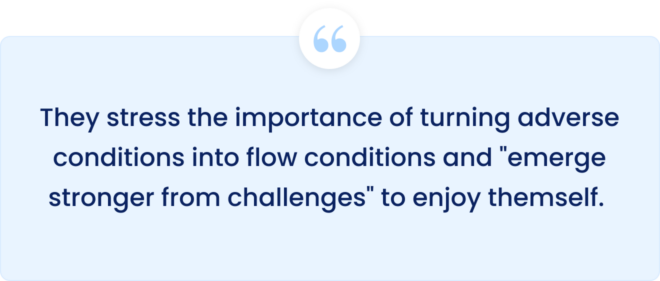
Some people derive their disruptiveness from within, others from external factors such as religion, country, or family, while some from mastery of art, music, or science. They stress the importance of turning adverse conditions into flow conditions and “emerge stronger from challenges” to enjoy themself.
This concept is like finding opportunities in difficulty. If you want to change the condition positively, then you have to follow three steps:
- Selfless unconscious self-assurance: Many believe their destiny is theirs. They also think they are part of an environment and should perform their best. To reach this level of self-assurance, you must trust yourself, your environment, and your role.
- Paying attention to the world: Avoid paying attention to your vanity; instead, be open to the world around you in optional ways to be aware.
- Explore new solutions: Keep paying attention to the whole situation, including your own, and find out if alternative goals can be better and whether other resources are available.
Autotelic self. This concept differentiates between those who triumph in difficult situations and those who become overwhelmed. The difference between the two is their thinking about external things.
The autotelic self is a person who can perceive the world with fairness. In this way, they are good at separating positivity or negativity from results and focusing on balancing it. They rarely have anxious feelings. And they are not afraid of what will happen if they get lost. They are ready to give their best while being in flow in every situation. These are the people who master the flow.
For this, the author has given a model. With which you can convert challenges into opportunities:
- Adjustment of Goals: If you remember from the previous chapter, this is an essential factor in achieving flow conditions. Your goals should be clear and specific so you can focus on them properly by adjusting your actions according to the desired result.
- Immerse yourself in Activity: After making a goal, you need to act. Remember, no empire like Rome was created just by imagination. It took thousands of hours of hard work and consistent wisdom. It would help if you were completely immersed in action by satisfying your neurochemical receptors to achieve greatness. So set goals and chase them.
- Pay attention to what is happening: Attention is essential for practicing mindfulness. You should be aware of the environment and things around you, especially paying more attention to a specific task.
- Learn to enjoy the experience immediately: Create your perspective on the world, regardless of the outcome. Becoming an autotelic self means setting goals, developing skills, being proactive about feedback, paying attention to them, and correcting mistakes to perform better next time.
In this way, develop such habits within yourself that lead you to live life like a stubborn person with a scientific outlook.
Even after reading this chapter, you may think that happiness comes easily when we become rich, beautiful, and healthy. But what if things don’t go as planned, and luck intends to train you a little? Sometimes we are unlucky enough to face danger and defeat.
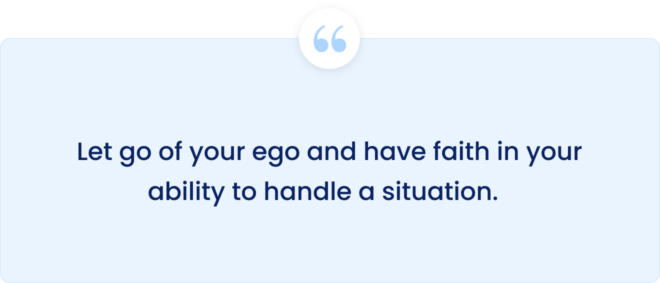
But don’t give up because doing so makes you feel helpless. Instead of giving up, use these three tips:
First, let go of your ego and have faith in your ability to handle a situation. For example, when you are doing important work on your computer, and it suddenly hangs without any reason, or when you are in a hurry, and your car unexpectedly breaks down, it affects your whole day.
Then you feel unlucky and say, “Why is this happening to me?”, We all probably say this to ourselves when we feel bad for something that happened contrary to our intentions. Therefore, we need to rethink the problem. If the car breaks down, consider that it runs continuously, making it minor to break. I need to call a mechanic to fix it or create an alternate goal, like canceling the meeting and finding ways to get home.
After this, be aware of your environment. Charles Lindbergh was the first human to fly solo across the Atlantic Ocean. For most people, this is a dangerous and scary task, but instead of focusing on the fear, Lindbergh kept faith in his ability to get there. Because of this, they were successful. Through mindfulness, Lindbergh overcame fear to make a historic flight.
Instead of just fear, focus on your work; you can do what you feel is risky. Third, find new solutions instead of facing challenges. For example, Mr. A has only one chance of promotion but must compete with people close to the boss.
Here, they have three options: find some way to convince the boss so that the boss selects based on merit, or change the job means going to another company that can give him more growth opportunities.
Or start your own business and spend time working on your projects. Now imagine what you would have done if you were in their place. Whatever your answer, stay focused on your work, and don’t be too scared to face challenges.
Chapter 10: The Meaning of Life
This last chapter explains how people synthesize experience into a meaningful picture. To find a reason to live, we need a goal. The result is; the optional important thing is that you challenge yourself. When you set a goal, work with determination and willpower. And lastly, maintain a balance between dreams and desire.
An example of this is given in the book. Malcolm X grew up in poverty and drug addiction and was sent to prison. Here, reading and thinking inspired her to become a social worker who fights for the rights of people and improves their quality of life. Now imagine a world where we have no specific goal, no desire. So can we fight deadly diseases, create masterpieces, or walk on the moon?
No. It can only be possible to do some of this with a purpose. To know the true meaning of LIFE, first set a goal that challenges you. Then try your best to achieve that goal, and when you achieve that goal, you will quickly gain the meaning of LIFE and genuine happiness. In the true sense, this will bring flow in LIFE.
Conclusion
Let us learn. Let’s repeat the lessons learned once:
- Use the power of flow to find true happiness.
- Remember what things you are making a part of your understanding.
- To achieve authentic happiness, start doing things you do not like to do initially.
- To remove fear and anxiety from your life, learn to create your awards. Also, develop the ability to find happiness and purpose regardless of external circumstances.
- Do yoga to feel the higher power of your LIFE.
- Start reading to bring flow to your thoughts.
- To achieve a flow state, seek new challenges at work, aim to learn as much as possible, and stop wasting time or setting wrong goals.
- Invest in relationships correctly; in the end, the results you will get will be surprising.
- Maintain focus on your work and move forward in LIFE. And don’t be too afraid to face challenges.
- Start finding the meaning of your life by setting a goal.
From this book, we learned about achieving flow in this book. If you want absolute joy, use all the methods mentioned. I hope you understand this book well and take care of the essential things mentioned to achieve real happiness.
Flow Book Review
“Flow” by Mihaly Csikszentmihalyi is a groundbreaking exploration of optimal human experience.
The book delves into the concept of “flow,” a state of complete absorption and focus that leads to heightened creativity and satisfaction. Csikszentmihalyi draws on extensive research to explain how individuals can achieve this state, blending psychology, philosophy, and practical insights.
By emphasizing the alignment of skill and challenge, he offers a blueprint for enhancing productivity and happiness. A thought-provoking read that illuminates the path to a more fulfilling life through the pursuit of optimal experiences.
Thank you !
Contents
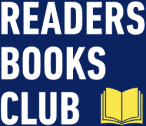
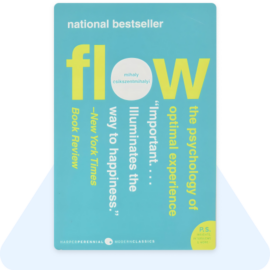
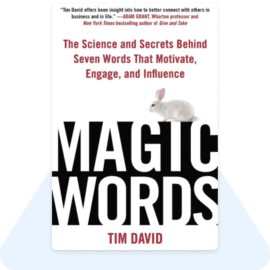
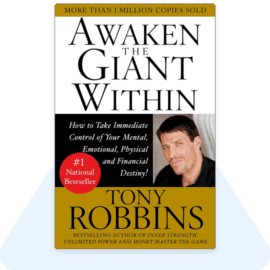
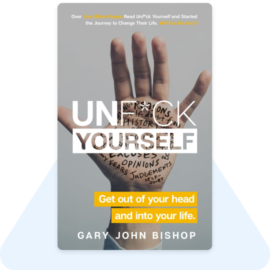
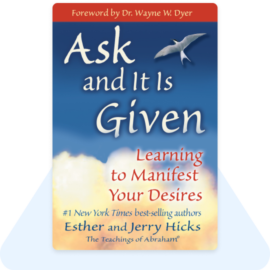
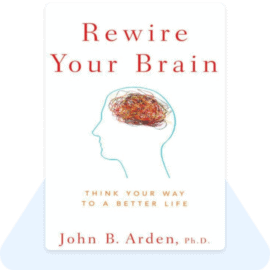
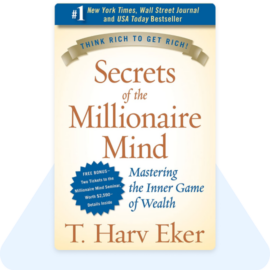
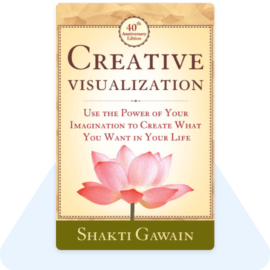
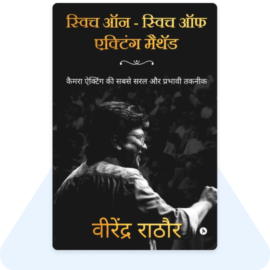
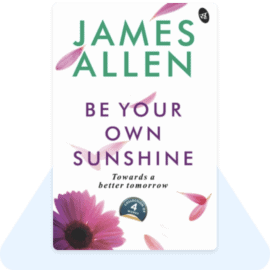
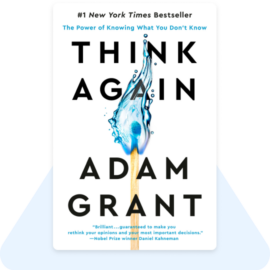
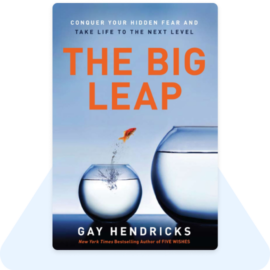
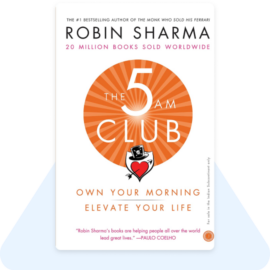
Hm aapke likhe huye summary ko yt video k liye use jr skte hain kya? Plzz reply.